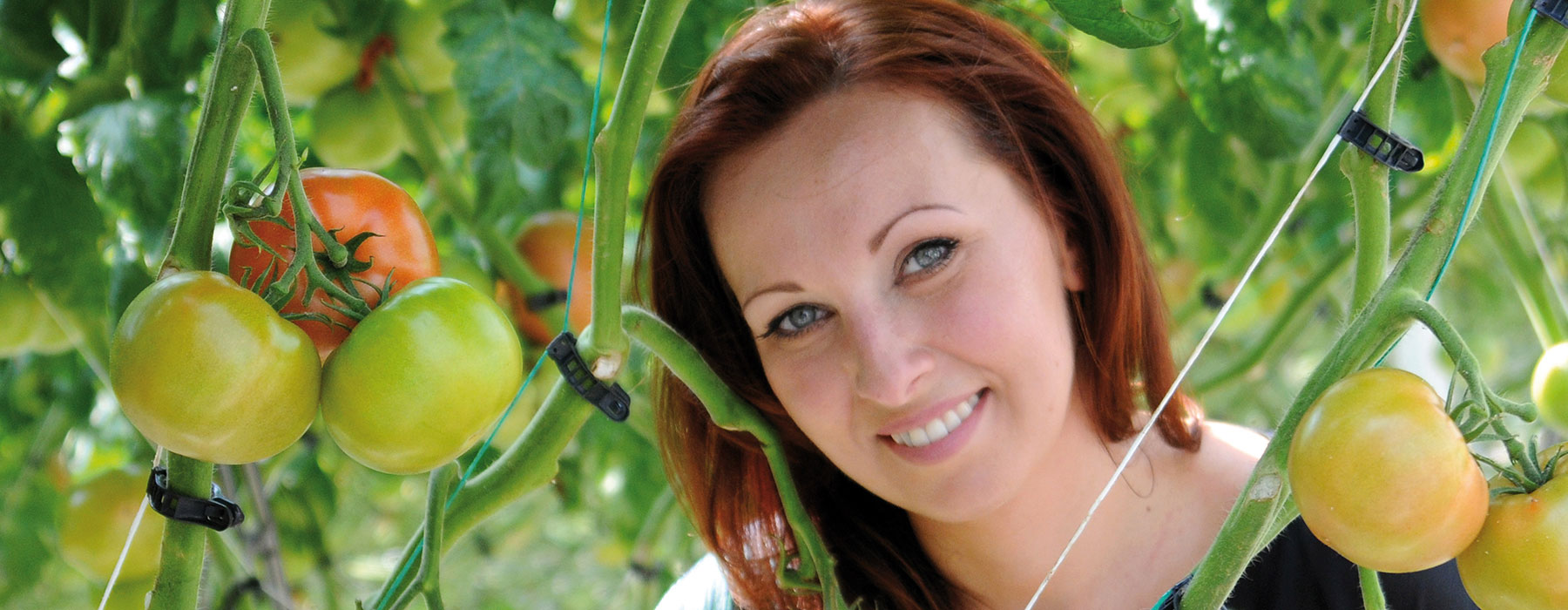NAME: SANDRA VAN ZALINGEN
COMPANY: SKLEP HALINKA
IN THE NETHERLANDS SINCE: 2004
As a Polish child, Sandra van Zalingen was not aware of Communism. Until 1989 contact with other countries was very limited, but in the nineties the attitude towards the West changed and in 2003 Sandra left, in the first instance for a holiday job in The Netherlands. One surprise followed another: how well everyone spoke English, and how different the relationship between employee and employer was. Opportunities arose from her holiday job: she was asked to set up a temporary employment agency in Poland for the selection of employees to work in The Netherlands. She was then approached for a position at a temporary employment agency, met her husband and remained in The Netherlands. During her pregnancy she missed certain Polish delicacies, and so the idea of starting a Polish shop was born. After several years she and her husband took the daring step of starting this business. Today there are no less than five Sklep Halinka establishments.
1. How long have you been in The Netherlands?
Since 2004.
2. How did you become an entrepreneur and why?
To pay for my studies I had to go to work. Around Easter, 2003 I set off for Van de Bosch, a tomato grower in Bleiswijk, to replace my brother for three weeks. It surprised me how well everyone spoke English. Until the 1990s we had only learnt Russian as an additional language in Poland. English only came much later. When I returned home after that summer I could settle the bill for my studies in a single payment. At the end of 2003 I was offered a job at a temporary employment agency. I ended my studies in Poland, met my husband and became rapidly and unexpectedly pregnant. During my pregnancy I started to miss Polish delicacies. And so the idea of starting a Polish shop was born. After the birth I continued to work for a temporary employment agency for a number of years, and in 2008 my husband and I felt the time was ripe to start a Polish supermarket. We opened our shop in February of that year. At first we drove to Poland every week to buy goods from wholesalers. Later we found a transport company that could do this for us. I maintained contact with my customers as closely as possible as they, after all, were the best source of information on what people wanted. This method of developing my assortment kept me busy for a long time!
3. Did you encounter problems when you wanted to become an entrepreneur?
The first months were difficult and I had to continue working for the employment agency as the shop produced too little income. Nevertheless, we decided to open a second shop. Both shops attracted not only Polish customers but also customers of other nationalities. A third, fourth and fifth shop followed rapidly. For now we’re not expanding any further, which allows us to retain control and maintain our quality. I try to be present at one of my stores every day. I find contact with people very important, which is why this way of doing business really suits me.
4. What are the differences between doing business in The Netherlands and in Poland?
The relationship between employee and employer is far more distant in Poland than it is here. For example, when I was picking tomatoes the boss would ride around ringing his bicycle bell to call the workers for their break. In Poland there would just be a bell going off loudly somewhere. The bosses often stopped to chat and appreciated that I worked so hard, which for me was just the obvious thing to do. There was mutual respect and gratitude. The Netherlands has given me nothing but positive energy. In The Netherlands everything is clear and well organised and there is less bureaucracy. I also find Dutch people more down-to-earth. Polish customers are also much more critical than the Dutch.
5. What is typically Dutch when it comes to doing business and being an entrepreneur?
The Dutch make long-term plans and are good at it. I still have to get used to the importance of the diary – Poles don’t plan so far ahead. I do try to find a balance between good planning and preserving a bit of spontaneity.
6. What have you taken from both the Polish and Dutch cultures?
From Polish culture – hospitality. You give your guests the best food and the best bedroom. From Dutch culture: planning and setting objectives.
7. Would you ever go back to Poland?
I don’t know yet, a holiday home in Poland is my big dream. I preserve my childhood memories and I am very proud that things are now going so well with Poland.
8. What are the secrets of your success?
My passion and patience. I am very open with my staff and also work at the checkout, because my customers know what people want.
9. What is your favourite fruit and why?
Apples – previously from the garden of my grandmother, soon from my own garden here.
10. What is your favourite Dutch product and/or place?
Place: Schiedam – it’s where my life in The Netherlands started and where I opened my first shop.
Product: treacle waffles, because they’re so delicious of course!
TIPS from Sandra
1. Have passion and patience
2. Keep both feet on the ground, but dare to dream!
3. Use Dutch common sense
4. Status cannot be the basis of your success
5. Be aware that you must first invest before you can make a profit
